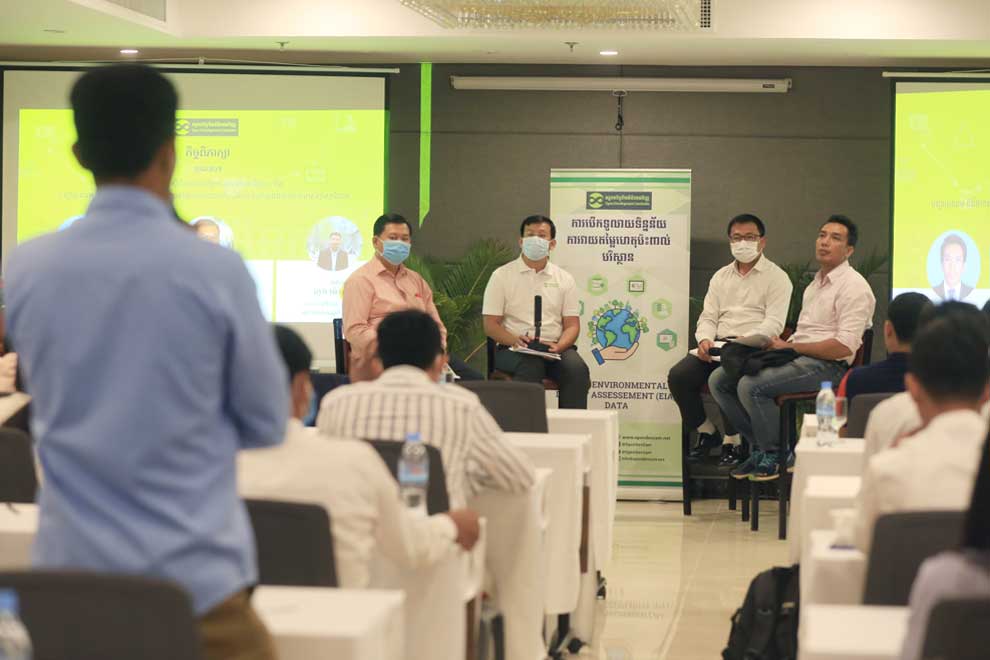
Yumi photographed at Angkor Wat. PHOTO SUPPLIED Hean Rangsey
Civil society organisations (CSOs) and communities have urged the government and relevant institutions to make Environmental Impact Assessments (EIAs) public, but officials say they are required to follow the policies of confidentiality of private firms.
Executive director of Open Development Cambodia (ODC) Thy Try said at a workshop on “Using Open EIA Reporting to Drive Accountable and Transparent Governance” on Thursday that EIA data and reports have not been widely shared in the past. Some State-owned institutions and private firms keep the information secret and restrict it.
“Some CSOs, the government and private companies have not been open to sharing EIA reports because they think they are the owners and controllers of the documents. In addition, they believe that what they obtain is confidential and cannot be shared,” he said.
If the government and private sectors continue putting restrictions on EIA reports, it triggers difficulties for researchers, investors and the public who want to conduct research on the environment, especially those who want to participate in preserving the environment. Without access to the reports, they do not have clear information, he added.
The NGO Forum on Cambodia’s Environment and Agriculture Programme Manager Hok Menghoin also urged the government and private companies to share EIA documents, saying environmental issues could not be solved solely by the government.
“For the past years, we note that public participation is crucial to solving environment-related issues and it leads to sustainable development. Therefore, we need community members, companies and the government,” he said.
Menghoin said concerns have been raised recently because complex environmental issues continue unabated. The public participation has become a prominent topic in current studies, particularly regarding the debate in environmental governance.
Ministry of Environment spokesman Neth Pheaktra said on Thursday that development projects and investments must undergo EIA and Social Impact Assessments with participation from all relevant ministries and CSOs. Pheaktra said the results of the meetings must be announced for the public without any concealment.
“We want to have participation in environment [protection] in our country. Meanwhile, we must also adhere to confidential policies of private companies because the information in the reports is privately owned,” he said.
Hoeun Sopheap, a community representative from Kampong Thom province, said at the workshop that most people in the community do not comprehend EIAs. If any company’s activities affect them, they complain about it but they do not know how to deal with it.
“As a Cambodian, we must have the right to know about the environment and participate in protecting the environment. The work of environment protection is not only for one person or one institution; it needs participation from all stakeholders, particularly frontline persons,” he said.












